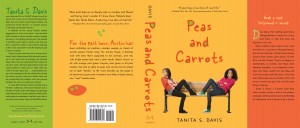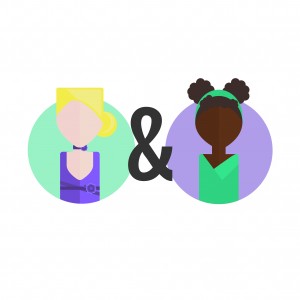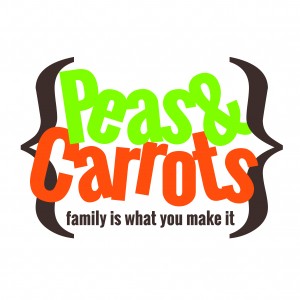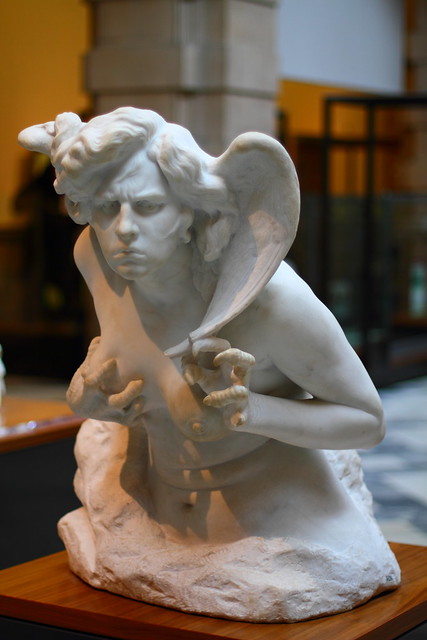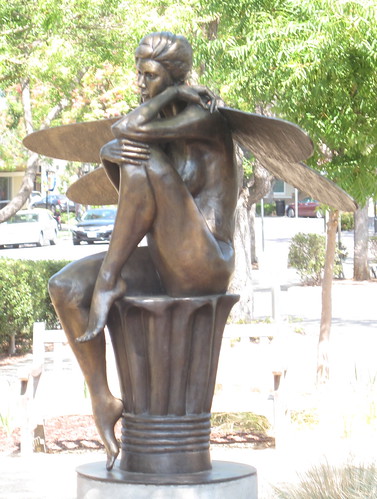Ninth grade, in a small and conservative Christian school. One of a count-’em-on-one-hand number of black students, I had been a poor fit with my mostly white, affluent peer group since the end of 7th grade. I was ostracized, cut from the herd for reasons I didn’t understand (but looking back, it had everything to do with my bra size). Freshman year found me lingering on the fringes, since few of the girls would speak to me; craving friendship, but fearing — well, everything, including my suddenly overwhelming body being the focus of attention from curious little boys to grown men, and being accused of “stealing” the boys by my former friends. Add to that my deeply authoritarian, don’t-spare-the-rod-old-school disciplinarian parent employed at my school who skulked around corners, watching to find me out of compliance and in rebellion, just once… I was in an increasingly constrictive straitjacket that squeezed tighter and tighter and tighter.
It is no surprise that I was at times a little difficult. A lot of times I was sullen. Sometimes I was flippant, or snarky, or dismissive. Sometimes I muttered under my breath and rolled my eyes. Sometimes, I wept silently, all through class. This is freshman year for a lot of people. This is… school.
Even then, my salvation was a pen on paper. I wrote. I drew. I scribbled furiously over sentences, pressed down and cut the words black until the pen bit and the paper tore and still I wrote. I was angry, angry, angry all. the. time. And the day our earnest young Bible teacher found it within his heart to lecture us once again about respecting him, when he showed so little respect for us, I. Had. Had. It.
Poor Mr. D… He’s a dentist now, having discovered after dealing with our class that he was much better off outside of the classroom. (Would that any number of others had made this brave and self-actualized choice.) In his early twenties, in his first teaching gig, Mr. D had apparently no idea about classroom management. He was …whining at us, glowering at individuals, calling them out, and wasting our entire class’ time for the infractions of a few. We’ve all sat through scenes like this. I hadn’t given him any grief – I hadn’t been the problem child he’d been going on about – but I was being forced to sit through his increasingly impassioned self-pity for how we just didn’t give him the honor he deserved. And then, his eye fell on me, hunched over, head down, pen scribbling madly as I wrote or drew myself out of the room —
I landed back in my head to hear my name. Some garbled demands in rising tones, “– when I’m talking. Put down your pen, sit up, and pay attention.”
My whole body jerked, like I’d been electrocuted. My pen skidded as everything went tight. I hated the attention of the whole room on me, hated that with a few words that I honestly didn’t really hear, he’d narrowed the focus of his little diatribe onto me. I remember feeling an electric prickle down my face, like all the follicles were squeezing closed. And from the chained and chastened inner me escaped one infuriated little word…
“NO.”
Again, poor Mr. D — he didn’t expect that. He didn’t expect any pushback from ME at all, which is possibly why he’d turned on me. I was — honestly, guys — A Good Girl. For all my side-eye, I was made of good grades and no backtalk, all assignments in on time all the time — I didn’t have any choice. There wasn’t room in my life, run like the tightest of ships, thanks to my father, for anything else. And yet, that word …so surprising, so out-of-control terrifying — that word I couldn’t take it back.
“No.” It dropped onto the floor of the suddenly silent room like a lead weight.
“Then you’re out of here. Right now. Get out.”
Head down, I continued to scribble — the words not making sense anymore – harder. My shoulders climbed toward my ears as I felt the metaphoric ice I was on grow thinner. What the heck was I doing!?
“I said GET OUT,” he repeated, standing, trying to loom from across the room. “You’re out of here.”
And the little voice – irrepressible and terrifying – spoke from a body with eyes downcast, “I didn’t do anything. I’m not going anywhere. You. Will. Have. To. Drag. Me.“
Lord have mercy, yes. Those words came out of my mouth.
And …nothing happened.
Oh, I’m sure I got a talking-to about respect, yadda, yadda, yadda, but nothing happened. Nothing that included me being dragged and thrown. Nothing that included violence in anything other than the feelings I had, of negation. Nothing. I did not obey, and the world did not end.
That whole story could have ended so badly, fast-forward twenty-plus years to this week in North Carolina. Nobody, no brown girl is going to dare a person of authority from the dominant culture to lay a hand on her, not if she values her life. I was privileged to be in a safe – though annoying – space known as school, even if it was painful and constricting, it was safe, for a given value of safety. All unknowing, I was rolling in my privilege.
Today I am hearing a lot of “what did she do?” from reporters and people in passing on Twitter, and I’ve gotta say, folks, “What did you do” is the wrong question. It never puts the right weight of responsibility on the right people, and it doesn’t even cut it when a child is just grizzling after having a tongue stuck out at them on the playground. When someone is hurt, the first response is not to make the person injured – even with something as overwrought as a stuck-out tongue – at fault. This I know, not because I have children, but because I am a human being who has had this happen before and it does not feel good, nor does it make me suddenly mindful of my behavior, and yearn to do better. No. Trying to place the blame on the black female student whom the North Carolina police officer assaulted the other day, saying she should be “held accountable” when her torqued neck, broken arm, and bruised body today has been punished far more than holding onto a phone in class could have ever warranted — these are statements that suggest that the child deserves her criminal mistreatment. And she, like any abused child or assaulted person, does not.
And neither would I have deserved to be dragged and dropped by Mr. D. — even though I dared him to.
